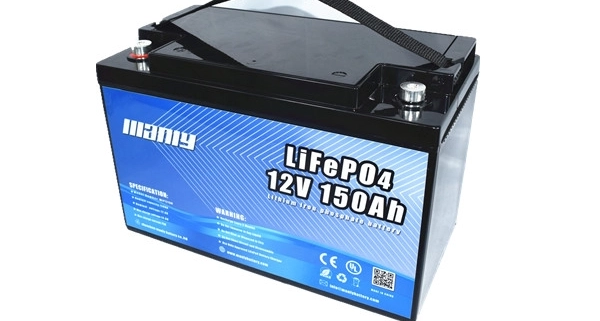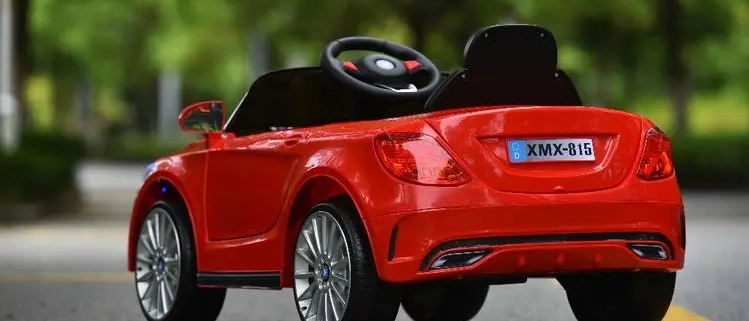Where Do Wholesalers Get Their Products: A Guide to Wholesale Lithium Batteries
Table of Contents
- Where Do Wholesalers Get Their Products: A Guide to Wholesale Lithium Batteries
- What is Wholesaling in the Lithium Battery Industry?
- The Benefits of Buying Lithium Batteries in Bulk
- Understanding the Supply Chain Role of Lithium Battery Wholesalers
- The Profitability of Wholesaling Lithium Batteries
- Conclusion
- Learn More About Battery
- Boosting Security Robot: 24V 100Ah Lithium Ion Battery
- 12V 150Ah Lithium Battery For Bank Emergency Systems
- 6V 4.5Ah Lithium Battery: Toy Car Power Revolution
In today’s energy-driven world, finding reliable lithium battery suppliers is crucial for businesses looking to provide consistent and efficient power solutions. Wholesalers play a key role in bridging the gap between lithium battery manufacturers and various industries requiring energy storage systems. By sourcing from established lithium battery manufacturers like MANLY Battery, wholesalers can benefit from high-quality products, tiered pricing discounts, and dependable supply chains, ensuring that their customers receive the best solutions to meet their energy needs.
What is Wholesaling in the Lithium Battery Industry?
Wholesaling in the lithium battery industry refers to the process of buying lithium batteries in bulk from a lithium battery manufacturer and then selling them to other businesses, such as retailers or end-users. This model allows wholesalers to obtain products at a discounted price due to the volume of their purchases, which makes it a cost-effective way to acquire high-quality batteries. Wholesalers, in turn, provide these batteries to smaller entities that may not have the ability or need to buy directly from manufacturers. By buying in large quantities, wholesalers help bridge the gap between manufacturers and the marketplace.
In the context of the lithium battery market, wholesalers act as important intermediaries, connecting lithium battery manufacturers like MANLY Battery with various businesses that require batteries for different applications, including electric vehicles, solar energy storage, and other uses. MANLY Battery, for instance, produces a wide range of lithium batteries suitable for multiple industries, and wholesalers distribute these products in bulk to ensure they are readily available to retailers or specialized clients. This system streamlines the distribution of lithium batteries, making it easier for businesses and end-users to access quality products without directly dealing with the complexities of manufacturing.
The key distinction between wholesalers and retailers in the wholesale battery market lies in their roles within the supply chain. Wholesalers purchase batteries in bulk from manufacturers, benefiting from lower costs per unit, and often store these products until there is demand. They serve as a link, ensuring that smaller retailers have a reliable supply of lithium batteries. Retailers, on the other hand, sell these batteries in smaller quantities to individual consumers or businesses, typically at a higher price to account for retail operating costs and profit margins. While wholesalers focus on handling large volumes and logistical efficiencies, retailers emphasize customer service and end-user sales.
By acting as intermediaries, wholesalers make the lithium battery market more accessible, facilitating smooth transactions between lithium battery manufacturers like MANLY Battery and the broader market. This model is beneficial for manufacturers, as it allows them to focus on production while wholesalers manage distribution. It also benefits smaller businesses and consumers by providing easy access to high-quality wholesale battery options.
The Benefits of Buying Lithium Batteries in Bulk
Buying lithium batteries in bulk offers several advantages, making it an attractive option for businesses and organizations with high energy demands. Here are some key benefits of bulk purchasing:
- Cost Advantages
One of the primary benefits of buying lithium batteries in bulk is the significant cost savings. Lithium battery manufacturers often provide discounted prices for large volume purchases, which reduces the per-unit cost. This cost efficiency is especially valuable for businesses that rely heavily on battery-powered equipment, as it helps to lower operational expenses over the long term. Bulk purchasing allows wholesalers to pass on part of these savings to their customers, making their offerings more competitive in the market. - Efficiency in Logistics
Bulk purchasing of wholesale batteries also brings logistical advantages. It simplifies inventory management by reducing the frequency of orders, which means fewer shipments and lower transportation costs. This streamlined process results in reduced administrative efforts, ultimately making supply chain operations more efficient. For businesses that require a consistent and reliable supply of lithium batteries, buying in bulk ensures that they have adequate inventory on hand, minimizing disruptions in their operations. - Quality Consistency
When buying from a reputable lithium battery manufacturer like MANLY Battery, bulk purchases ensure quality consistency across all units. Receiving standardized products in large quantities means businesses can count on consistent performance for their applications. Quality consistency is crucial for industries that depend on the reliability of lithium batteries, such as renewable energy storage or electric vehicles. This consistency not only boosts confidence in the product but also minimizes risks related to variations in battery performance. - Long-Term Relationships
Bulk purchasing helps foster long-term partnerships between wholesalers and lithium battery manufacturers. By committing to large orders, wholesalers can negotiate better terms and establish a reliable supply chain. These long-term relationships often lead to further benefits, such as priority access to new products, customized battery solutions, and dedicated support from manufacturers. A strong partnership with a manufacturer like MANLY Battery ensures that wholesalers can consistently meet market demands while maintaining high standards of quality and reliability.
Understanding the Supply Chain Role of Lithium Battery Wholesalers
The lithium battery supply chain involves several key stages, starting from raw material suppliers and ending with the final product reaching end-users. This complex supply chain begins with sourcing raw materials like lithium, cobalt, and nickel, which are essential for manufacturing battery cells. These raw materials are then processed and assembled by lithium battery manufacturers such as MANLY Battery into high-quality battery packs, which are distributed to various markets.
MANLY Battery’s Position within the Supply Chain
MANLY Battery plays a crucial role in the lithium battery supply chain as one of China’s leading lithium battery manufacturers. With over 13 years of experience, MANLY Battery produces a wide range of wholesale battery products, including LiFePO4 and lithium-ion batteries, designed for numerous applications like solar energy storage, electric vehicles, and industrial use. Their production capacity, which includes assembling over 3,000 batteries per day, ensures a steady supply of high-quality batteries to meet market demands. Positioned at the manufacturing stage of the supply chain, MANLY Battery is responsible for transforming raw materials into reliable energy storage solutions, providing consistency, quality, and customization to their clients.
How Wholesalers Contribute to the Distribution and Accessibility of Lithium Batteries
Wholesalers serve as the vital link between lithium battery manufacturers like MANLY Battery and the end-users. By purchasing batteries in bulk, wholesalers help distribute lithium batteries efficiently across various markets, ensuring that products are readily available to retailers, installers, and other clients. This bulk purchasing approach not only makes lithium batteries more accessible but also reduces the overall cost for retailers and end-users.
Moreover, wholesalers often handle the logistics of transporting large volumes of batteries from the manufacturer to different regions. This helps streamline the distribution process, making it easier for lithium battery products to reach diverse customers without delays. Through their role, wholesalers also help manufacturers like MANLY Battery focus on core production activities, while they manage distribution, customer relationships, and ensure the products are accessible to a wide audience.
By bridging the gap between manufacturers and end-users, wholesalers play a crucial part in optimizing the lithium battery supply chain. They ensure that high-quality wholesale battery products are available where and when they are needed, ultimately contributing to the growth and sustainability of the lithium battery market.
The Profitability of Wholesaling Lithium Batteries
The profitability of wholesaling lithium batteries is influenced by various factors, including market demand, sourcing strategies, and long-term business relationships. Here are some key factors that impact profitability in this industry:
Factors Impacting Profitability
- AGV Robots
In industrial automation, Automated Guided Vehicles (AGVs) have a strong demand for efficient and reliable power solutions. Lithium batteries, with their high energy density and long cycle life, meet the requirements for continuous operation of AGVs in warehouses and manufacturing facilities. According to a report by QYResearch, the global AGV lithium-ion battery market was valued at approximately RMB 4.2 billion in 2022 and is expected to reach RMB 7.3 billion by 2029, with a compound annual growth rate of 8.3%. This rapid market growth will drive increased profitability for wholesalers. - Solar Energy Storage
Lithium batteries are widely used in solar energy storage systems due to their high energy efficiency, long lifespan, and ability to handle frequent charge and discharge cycles. The transition to renewable energy, especially solar, has significantly increased the demand for reliable energy storage solutions. According to the German Energy Storage Systems Association (BVES), sales of residential solar batteries in Germany are expected to grow by 26% in 2024, with revenue increasing from €3.8 billion in 2023 to €4.8 billion in 2024. This presents wholesalers with an opportunity to meet the growing market demand, ensuring a stable source of profitability. - Golf Carts, Marine Applications, and RVs
The use of lithium batteries in golf carts, marine applications, and RVs is becoming increasingly popular due to their lightweight nature, longer lifespan, and faster charging capabilities compared to traditional lead-acid batteries. For golf carts, lithium batteries are favored for their performance and suitability in both recreational and commercial environments. In marine applications, lithium batteries are preferred for powering boats and yachts due to their reliability, high energy density, and low maintenance requirements. For RVs, lithium batteries provide consistent power for off-grid camping and are compatible with solar panels, making them a reliable energy storage solution. The growing popularity of lithium batteries in these diverse applications presents a significant opportunity for wholesalers to supply high-quality batteries, contributing to increased profitability by tapping into these expanding markets.
Each of these sectors requires reliable power solutions, and the shift towards lithium batteries for their superior performance and longevity creates a strong and growing market for wholesalers. With high demand from diverse applications, wholesalers can tap into various segments to maximize profitability. Additionally, sourcing batteries from an established lithium battery manufacturer like MANLY Battery ensures access to high-quality products, which is essential to maintain customer satisfaction and secure repeat business.
Advantages of Sourcing from Established Manufacturers
Working with established manufacturers like MANLY Battery provides several advantages that enhance profitability. MANLY Battery offers tiered pricing discounts based on order volume—orders of 200 to 500 batteries receive a 5% discount, while orders above 500 batteries receive a 15% discount. This allows wholesalers to significantly reduce their costs and improve profit margins. Furthermore, sourcing from a trusted manufacturer guarantees product quality and reliability, which reduces the risk of returns or customer complaints. MANLY Battery’s certifications, such as UN38.3 and UL, further boost confidence among wholesalers and their customers, making it easier to secure long-term business relationships.
Long-Term Profitability through Partnerships
Long-term profitability in the wholesale battery market is often achieved by building strong partnerships with reliable lithium battery manufacturers. By committing to large orders and fostering good relationships with manufacturers like MANLY Battery, wholesalers can negotiate better pricing and secure a consistent supply of batteries. This consistency is crucial for meeting market demand and avoiding supply chain disruptions. Long-term partnerships also open the door to additional benefits, such as exclusive access to new products, customized battery solutions, and dedicated support from the manufacturer.
Establishing strong relationships with a lithium battery manufacturer like MANLY Battery not only ensures a steady supply of high-quality batteries but also helps wholesalers to position themselves as trusted suppliers in the market. This reputation can lead to more business opportunities, enhanced customer loyalty, and ultimately higher profitability over time.
Conclusion
Wholesaling lithium batteries offers significant opportunities for profitability, thanks to the growing demand across diverse sectors such as solar energy, AGV robots, and recreational vehicles. By leveraging bulk purchasing advantages, fostering long-term relationships with trusted lithium battery manufacturers, and effectively managing logistics, wholesalers can ensure a stable supply of wholesale battery products. Working with reputable manufacturers like MANLY Battery not only provides access to quality and innovation but also builds a foundation for consistent growth and sustainability in the competitive lithium battery market.






